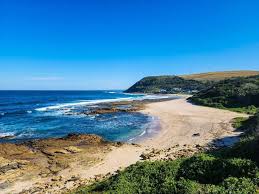Top 10 Largest Railway Stations in India (Updated List)
- February 25, 2026
- Travel
Have you ever thought of the largest railway station in India that is not just a station but a publicly… Read More

Wild beaches offer a unique opportunity to connect with nature in its purest form. On the wild beach, you can rest, observe the world of animals and fish, and completely relax. But if you don’t like such a calm kind of rest, then don’t worry Hell spin works in all corners of the world. So even on a wild beach, you can enjoy your favorite games.
However, their untouched beauty also comes with certain challenges and considerations. To ensure a safe and enjoyable experience, it’s essential to follow some simple rules and guidelines. In this guide, we’ll explore the key rules for a safe stay on a wild beach.
The first rule of visiting a wild beach is to appreciate its natural beauty without leaving a trace. Leave no litter behind, and dispose of your waste responsibly. Bring reusable containers for food and drinks to minimize plastic waste.
Each wild beach may have specific rules and regulations. Before you go, research the beach’s guidelines regarding camping, fires, and other activities. These rules help protect the fragile ecosystem and ensure a safe experience for everyone.
Always check the weather forecast before heading to a wild beach. Sudden changes in weather, such as storms or strong winds, can pose risks. Ensure you’re prepared for any weather conditions.
Wild beaches often lack amenities like drinking water sources. Bring an adequate supply of water to stay hydrated throughout your visit. Avoid dehydration, especially on hot days.
If you plan to camp, select a safe spot away from the high tide line. Ensure your campsite is not too close to cliffs, which can be unstable, or in areas prone to flooding.
If campfires are allowed, follow fire safety guidelines meticulously. Use designated fire pits if available, or create a safe fire ring away from flammable vegetation. Keep a bucket of water or sand nearby for extinguishing the fire completely.
Wild beaches are often home to diverse wildlife. Keep a respectful distance from animals, and never feed them. Do not disturb nesting birds or their habitats, as these areas are crucial for their survival.
Tides can change rapidly and dramatically on wild beaches. Familiarize yourself with the tide schedule, and plan your activities accordingly. Avoid getting trapped by rising tides, especially in coves and tidal pools.
Some wild beaches are near local communities or indigenous lands. Be respectful of these communities’ rights and traditions. Seek permission if needed and adhere to any cultural or access restrictions.
Ensure you have essential gear for a safe beach visit. This may include a first aid kit, navigation tools, sunscreen, insect repellent, a map of the area, a multi-tool, and a flashlight.
In case of emergencies, have a communication plan. Cell phone signals may be weak or nonexistent on some wild beaches. Carry a satellite phone or personal locator beacon for emergencies, and inform someone trustworthy about your plans and expected return time.
Leave No Trace principles are essential for protecting the environment on wild beaches. Stick to established trails and campsites, and avoid trampling on delicate vegetation. Use biodegradable soap or, better yet, none at all when washing dishes or yourself.
Familiarize yourself with basic navigation skills. Carry a map and compass or a GPS device. Knowing how to find your way is crucial in case you get lost.
If you plan to swim or engage in water activities, assess the water conditions carefully. Pay attention to strong currents and riptides. Wear appropriate safety gear, such as life jackets, when necessary.
When it’s time to leave, ensure you’ve left no trace of your presence. This includes packing out all trash, extinguishing fires completely, and removing any signs of your campsite.
By following these rules, you can enjoy the untamed beauty of wild beaches while ensuring your safety and the preservation of these fragile ecosystems. Remember, responsible and respectful behavior allows future generations to experience the wonder of these pristine natural landscapes.
Join The Discussion